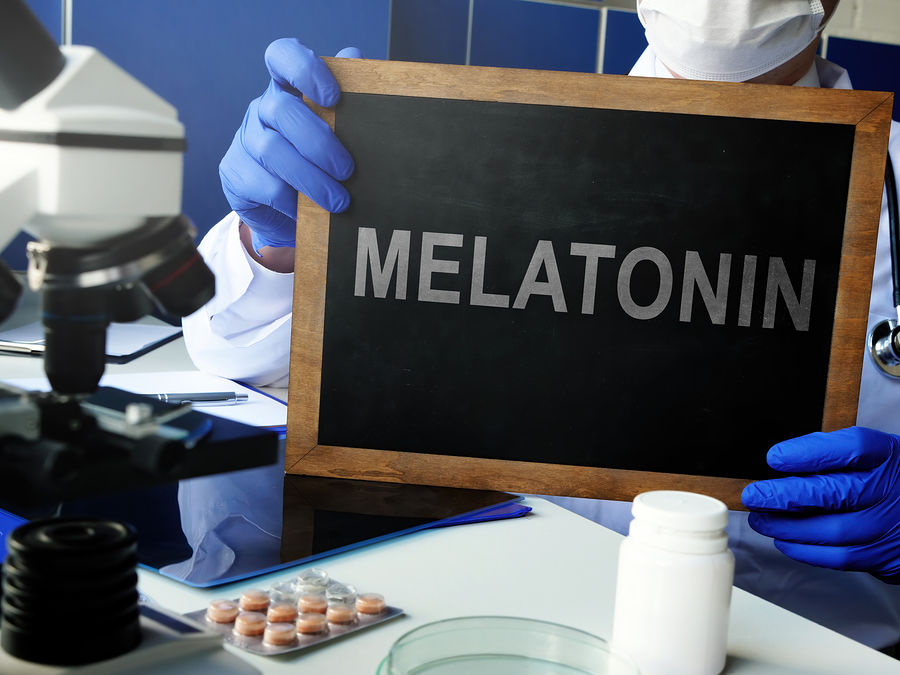Long considered a “sleep hormone” new research is showing how melatonin benefits the immune system. In the current pandemic of CoVid19 one thing is clear. Those with a depressed immune system are more susceptible to this deadly virus.
And anything you can do to boost your immune system helps to protect your body.
As I’ve been searching for natural ways to boost the immune system, I came across information on how melatonin benefits the immune system.
Melatonin is a hormone. It is produced primarily in the pineal gland of the brain. But it’s also produced in cells of your immune system. And its main function seems to be in coordinating the communication within your immune system.
Scientists call this type of communication “cross talk.” tt’s designed to coordinate your body’s defense against a wide range of pathogens like viruses, harmful bacteria, and cancer cells.
This “cross talk” enables your body’s immune system to recognize harmful viruses and disease-causing bacteria and then work to eliminate them.
Unfortunately, with age and certain types of lifestyle choices, the immune system can become compromised or weakened. This is particularly evident with older people, who are at extreme risk to the CoVid19 virus.
Why is this important?
Because improved melatonin levels help to counter this risk by:
-
Enhancing the antibodies that “tag” specific viruses, bacteria, and other pathogens to then be attacked by various components of the immune system.
-
Reducing chronic inflammation, which distracts your immune system from paying attention to the real problems.
-
Enhancing T cell activity, to more effectively destroy pathogens.
Even those with a healthy immune system can use melatonin to stimulate both T cells and NK cells that are used to eliminate virus-infected cells.
The communication, or signaling factors, are critical in the proper response of your immune system. Without this, your immune system will also target normal cells.
As doctors have seen in the CoVid19 cases that lead to death, it’s usually the body’s immune system that is out of control and overactive.
Melatonin helps to regulate several key immune signaling factors. These factors are needed to effectively coordinate the immune response, which protects normal cells while targeting abnormal cells.
This use of melatonin to coordinate NK or natural killer cells, that identify and eliminate abnormal cells, also applies to cancer. There are many studies that show how melatonin helps to suppress several forms of cancer like:
-
Breast cancer
-
Brain cancer
-
Ovarian cancer
-
Uterine cancer
-
Melanoma
-
Prostate cancer
-
Colon cancer
Melatonin Benefits the Immune System – Natural Sources
If you do not want to take a nutritional supplement, then there are several natural sources for getting melatonin into your diet.
The three best fruit sources are grape, cherries, and strawberries.
In animal foods, the highest concentrations of melatonin can be found in eggs and fish.
For vegetables the two best sources are tomatoes and peppers.
Click here to link to a good source of information (Dietary Sources and Bioactives of Melatonin) that discusses this in great deal.
Melatonin Benefits the Immune System – How Much Do You Need
The amount of melatonin varies with age and individual. And more is not better. In fact, too much melatonin can disrupt your sleep. Other common side effects of taking too much are headaches, nausea, dizziness, and irritability.
This means it’s best to start with smaller doses. Usually two tenths of a milligram and then increase as need.
The upper range of melatonin is usually five milligrams.
If you’re taking melatonin to help with sleep, then take it 60 minutes before bedtime. Again, start with smaller does and evaluate how it helps you with your sleep. In not effective, then gradually increase until you find the amount that helps you get a good night’s sleep.

Leave a Reply
You must be logged in to post a comment.